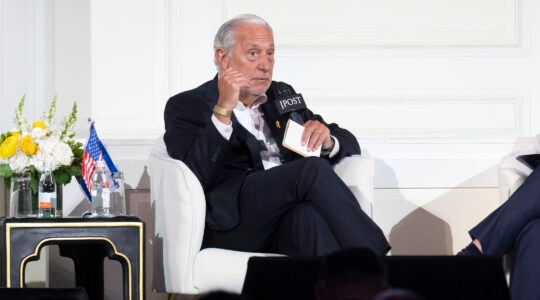A media advisory went out last week announcing that the CEO of the Jewish Agency for Israel North America, Maxyne Finkelstein, has told agency officials that she would leave her position when her current contract expires in July.
As the CEO of the agency’s North American office, Finkelstein was in charge of North American fund raising, public relations and overseeing the 300 emissaries, or "shlichim," posted by the agency in North American Jewish communities.
Some Jewish Agency insiders are whispering that Finkelstein’s decision to leave may not have been entirely her own, with all arrows pointing to this one coming from the agency’s new top professional, Natan Sharansky.
There are plenty of ifs here to sort out, but if Sharansky indeed pushed out Finkelstein, it would be a fairly significant development.
That’s because the North American branch, known as JAFINA, has its own board, which in theory has the authority to decide about Finkelstein’s future (assuming there was one). JAFINA chairwoman Carole Solomon would not comment on whether her board was looped into this personnel move.
Whatever the real story, the decision appears to have little to do with Finkelstein’s performance. Instead, it seems to be mainly about the agency’s rethinking of JAFINA.
In recent years, JAFINA has taken on a more significant role as a fund-raiser, hiring five full-time and one part time professional "relationship managers" to make the case for the agency to local Jewish federations. In addition, it created a council of 50 lay leaders from local federations who were supposed to lobby for the agency to their peers.
The idea was for the agency to raise more money on its own from federations to become less dependent on seeing how much the system as a whole would annually kick in.
The relationship managers have brought in more than the $2 million annual cost of the program — but not enough to meet expectations, said Jewish Agency officials.
The agency’s chairman, Richard Pearlstone, said that even though the model pays for itself, it might need to be tweaked or perhaps scrapped.
"We need to find someone new and make sure the job description is right," he said. "If we have the wrong model, the model has to be changed."
One school of thought has Sharansky and those on the other side of the ocean wanting to put an Israeli in Finkelstein’s position and returning to a model where the CEO of JAFINA would simply oversee the shlichim in the United States.
Such a move would not fly with many lay leaders on this side of the Atlantic.
"The only comment I will make is that I think [Finkelstein] did an excellent job both running the shlichim and running the North American operation for the Jewish Agency," Solomon said. "I don’t think you have to be an Israeli to do it.
"But if the home office, so to speak, feels differently, that is their prerogative."
JTA has documented Jewish history in real-time for over a century. Keep our journalism strong by joining us in supporting independent, award-winning reporting.





